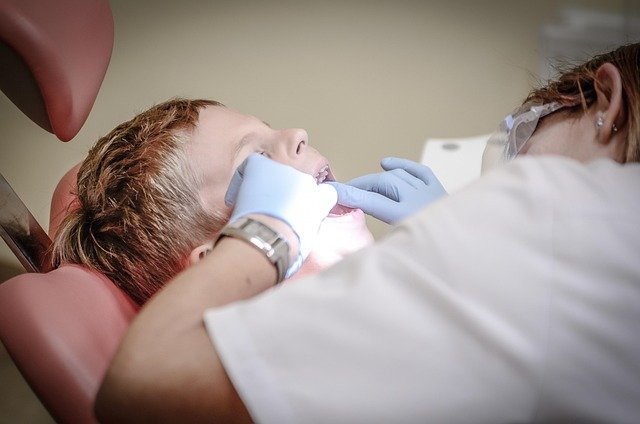How Much Do Full Mouth Dental Implants Actually Cost for Seniors in Australia? Key Facts and Smart Ways to Save in 2025
Did you know that full mouth dental implants for seniors in Australia can cost up to AUD 60,000 as of 2025? This article explores typical expenses, factors affecting costs, and practical strategies to help manage these investments in restoring your smile.

Full mouth dental implants offer a permanent solution for extensive tooth loss, designed to closely mimic the look and function of natural teeth. For seniors, this can enhance quality of life and oral function. Implants also encourage jawbone stimulation, reducing the risk of bone loss and supporting facial structure over time. While traditional dentures may have a lower upfront expense, they generally do not provide the same stability or bone support as implants. This is why many seniors view implants as a long-term investment in oral health. As of 2025, the average starting cost for full-mouth dental implants in Australia is:
- AUD 30,000 per arch (upper or lower jaw)
- AUD 60,000 for both arches
Typical Breakdown of Costs
- Initial consultation and imaging: from AUD 300
- Surgical placement (per implant): from AUD 1,500
- Bone grafting (if needed): from AUD 500
- Temporary teeth during healing: from AUD 1,000
- Final fixed prosthetic teeth: from AUD 15,000 per arch
Most patients require 4 to 8 implants per arch as the base for their prosthetic teeth. Several factors influence the total cost for senior patients, including:
- Number of implants: More implants generally increase the price.
- Type of materials used: Options like titanium or zirconia vary in cost.
- Need for additional procedures: Treatments like bone grafts or extractions can add expenses.
- Experience of the dental professional: Skilled surgeons may charge higher fees.
- Clinic location: Prices may differ across Australian regions.
General Outline of the Process
- Initial Consultation: Evaluation of oral health and bone density with X-rays and scans.
- Preliminary Treatments (if needed): Procedures such as extractions or bone grafting to prepare the jaw.
- Implant Placement: Insertion of implants under local anaesthesia. Temporary teeth may be provided during healing.
- Healing and Integration: Bone fuses with the implant over several months.
- Abutment and Prosthetic Teeth Fitting: Custom prosthetic teeth are attached once healing is complete.
- Aftercare and Maintenance: Regular checkups and oral hygiene are essential to maintain results.
Medicare, Private Health Insurance, and Government Support
Medicare typically does not cover dental implants, as they are considered elective procedures in Australia. Some private health insurance extras cover plans might help with items like crowns or imaging but usually exclude implant surgical placement. It is advisable to check your policy or contact your insurer for precise details.
Although comprehensive government funding for full dental implants is not available as of 2025, some state or territory programs may offer limited support or discounts for eligible seniors. Veterans might also access certain dental benefits through the Department of Veterans’ Affairs, depending on eligibility.
Payment Options and Financial Assistance
Considering the costs involved, dental clinics may offer:
- Flexible Payment Plans: Allowing payments in instalments over time.
- Payment Services: Options such as Afterpay, subject to approval.
- Personal Medical Loans or Credit: Health-focused credit cards or personal loans with various repayment schedules.
- Fee Negotiations: Some clinics may reduce fees or provide discounts for seniors or pensioners.
Seniors are encouraged to:
- Ask about in-house financing or payment plan options.
- Request details on all available cost support or financing possibilities.
Benefits of Dental Implants for Seniors
Many seniors regard implants as a durable solution for tooth loss, with noted benefits:
- Durability: With proper care, implants can last many years.
- Jawbone Support: Implants help preserve bone structure compared to traditional dentures.
- Comfort and Functionality: Implants offer stable chewing and speaking ability.
- Potentially Lower Long-Term Dental Costs: Treating tooth loss may reduce the risk of certain future dental issues.
Summary
There is no standard discounted rate for pensioners; nevertheless, exploring all payment, insurance, and government assistance options is strongly recommended. Consult your dental provider to check for eligibility for payment support or state-based aid. Veterans should also inquire with the Department of Veterans’ Affairs about dental implant coverage.
In 2025, the cost of full mouth dental implants for seniors in Australia starts at about AUD 30,000 per arch and AUD 60,000 for both. While the price is significant, payment plans and occasional subsidies for qualifying pensioners can aid affordability. Implants may provide lasting oral health benefits. Speaking with a qualified implant dentist and investigating all financing options are important steps in making an informed decision.
Sources
- https://macquariedental.com.au/blog/dental-implant-costs-in-australia-2025
- https://completedental.com.au/full-mouth-dental-implants-cost
- https://smileworkx.com.au/dental-implants-for-pensioners-guide
Disclaimer: All content, including text, graphics, images and information, contained on or available through this web site is for general information purposes only. The information and materials contained in these pages and the terms, conditions and descriptions that appear, are subject to change without notice.




